|
"If anyone forces you to go one mile, go with him two miles."
Matt. 5:41
How Far Will You Go?
... More than Average
How would you rate your efforts? Your obedience? Your thoroughness and serviceability? If you were to send home a grade card which would give a score on your level of love, what would it be?
Let's say you get a passing grade. You've done what was required. The task was completed. Satisfactory, right? Now determine that grade on the basis of Christ's call to "go the extra mile." In ancient Rome citizens could be compelled by Roman soldiers to perform specific labors. For instance, to carry a soldier's gear. The law said that person would have to lug the pack one mile. Jesus comes along and puts up a new standard though. He tells his people to go two miles. In sum, outdo what is expected of you. What seems to be a minor inconvenience should not bother you. Your heart should be so wide that you become willing to go beyond the bare minimum. After being married, I came to see the importance of this. For me, it didn't matter if the laundry got put away in the drawers. If it got folded, that was a bonus in my eyes. My standard was quickly challenged. My new wife had different expectations. But it wasn't enough to put the socks back into the drawer. She liked the drawer to be closed all the way, nice and neat. If the socks were sticking out or the drawer left slightly open, it was a bother. Don't think that my wife is a bugaboo about it. She lovingly would overlook it and fix it herself if need be. But the Lord began to convict me. What kind of love was I showing? Was it "satisfactory" or could I go the extra mile and tuck in the shirts and close the drawers all the way? The principle of going the extra mile and doing more than what was expected/required of me became something that needed to be applied in many other ways. It was not just applied to my dresser drawers, but it also needful in the way I did the dishes and carried on conversation. It applied to parenting and a myriad of other small, but important aspects of life. Walking a mile is, in the grand scheme of a day, not that big of a deal. It is, in many ways, a minor inconvenience. It's more about the willingness to submit, to serve, and to give up what you find pleasurable in the moment. Really, Christ himself shows what it means in the most demonstrable ways. He became a man. He gave up vacations (Mk 6:31-33). He would not sip the drink that would numb the cross's pain. He let himself be inconvenienced in a host of ways so that he could show the love that would save and bring life. In view of that, what is a mile or two? Our inconveniences are pretty inconsequential. The love of Christ calls us to "go a little bit further." And so, as his disciples, we should be prepared do more than a mere C+ on our daily callings. If the boss asks for a spreadsheet, it should be the best possible spreadsheet he could ever get from us. If your mother tells you to set the table, you should make the effort to put those spoons in perfect alignment. As the gospel exceeds our expectations, let that be the mindset that we also have. When handed a task, as yourself, "How can I go the extra mile here? What can I do to make sure that this is done in the best possible way?" As you go that extra mile, you will be showing a love that is truly divine.
This Sunday @ Hopewell
The Magi Confirm Christ's Imperial Rule Matthew 2:1-12
Lessons & Carols
Be sure to join us on Christmas Eve at 6:30 as we meditate on our Lord's birth. You will be blessed by Scripture readings, carols, and special music pieces.
Ring In 2022 with Hopewell
Join us at Pleasant Valley Ranch Campground for an evening of great fellowship. Pizza and drinks will be provided. Doors will open at 6pm. Feel free to come or leave whenever you'd like.
0 Comments
"We take every thought captive to make it obedient to Christ."
1 Corinthians 10:5
Enjoying Your Shows to the Glory of God
... Identifying the Message of a Movie "A man was going down from Jerusalem to Jericho and he fell among some robbers..." "While some Israelites were burying a man, suddenly they saw a band of raiders; so they threw the man’s body into Elisha’s tomb. When the body touched Elisha’s bones, the man came to life and stood up on his feet." "The word of the Lord came to Jonah son of Amittai: “Go to the great city of Nineveh and preach against it, because its wickedness has come up before me.” But Jonah ran away from the Lord..." There's something electric about a good story. It has the power to grip you and captivate your attention. It reels you in and speaks to your soul. Yes, it speaks. A story's value (or detriment) is not merely in its entertainment value, it is also in its ability to convey ideas. The Lord knows this well. That's why he composed the Bible the way he did. Approximately 70% of it is narrative. He reveals his truths in dramatic form to our emotions and senses as well as our hearts and minds. The movies and films of today are merely contemporary society's way of embodying this age old phenomena. And, if we are wise, we will seek to be just as discerning with what we watch on the screen as we are with what we read in Scripture. How exactly do we do that? Much of it comes by understanding the basic elements of a story. In his book, Hollywood Worldviews, Brian Godawa outlines how you can discern the basic message (or "theme") of a film by understanding its core structural elements. The Theme The theme is what the movie is all about. Sometimes it can be thought of as "the moral of the story" and can be stated propositionally as a premise that leads to a conclusion. If we put it as an equation, it would be "x leads to y." My wife and I have recently re-watched the 1998 Disney production of The Parent Trap. It's a corny romantic comedy about how two twins separated at birth bring their divorced parents back together. It's theme might be "Cuteness, determination, and a little tit-for-tat deception lead to the restoration of true love." But how did I get there? Let's walk through the rest of the plot elements and see. The Hero A story has a central figure who serves as the hero. In The Parent Trap, there are actually two heroes. They are the adorable 11 year old twin girls, Hallie and Annie, who (by fate or by chance) happen to meet at summer camp. The Hero's Goal The hero always has a goal, which drives the story. This obsession is what makes the story. For Hallie and Annie the goal is a united family, where father and mother live together, love each other, and shower their dual affection upon their kids. In sum, they are obsessed with what might be called the ideal nuclear family. The means used to achieve this goal may be of some question. It's not your good old fashioned "honesty is the best policy." Their sisterhood had been hidden from them, so they practice a little deceit of their own by switching places when the time comes to go back home. The Adversary Conflict is central to every story. That is why every story has an adversary. Some may call it "the bad guy" or "the villain," but it doesn't necessarily have to be a person. It could be nature, a corporation, chance, or overly strict rules/society. Whatever it is, it stands against the hero to keep him from achieving his goal. In The Parent Trap, the adversarial role may be said to be the dazzling beauty who is attempting to wed the father figure, thus preventing the unification of the parents. But the adversary may also be said to be divorce and man's inability to reconcile due to a lack of humility, repentance, and the ability to forgive. The Character Flaw Just as the adversary acts as the external opponent, so too there is an internal opponent. On the way to achieving the goal, the hero must overcome this defect. As the story unfolds the hero will learn the right way to live. In The Parent Trap the girl's youth may be said to be that flaw. The Apparent Defeat A good show will at some point have the hero utterly stymied. The adversaries mentioned above will become too great an obstacle and leave the hero facing a moment of hopelessness and despair as the goal seems out of reach. Hallie and Annie feel like they meet their match when the plan they hatch falls apart. The lovely fiancée and the stubborn pride of their parents seem to win the day. Final Confrontation Towards the end of the story the adversary and the hero must face off in one last battle. It may be a physical fight or a verbal confrontation, but either way it is the moment for which everyone has been waiting. The final confrontation in The Parent Trap is a camping trip where the ritzy beauty is in comedic style revealed to be a less than desirable fit for the father. Self Revelation Just before the movie ends the hero will give "the moral of the story." Typically it will be wrapped in a conversation where the hero will give a speech about what he or she has learned or how his/her mind has changed. The theme will break loose at this point as you now understand how you are supposed to live in the world. As with most romantic comedies, the self revelation of The Parent Trap is teased along and extended until the "big kiss." The father and mother realize the folly of their ways and express their repentance in their re-unifying smooch. Resolution What happens as a result of the change (or lack of change)? Where does the hero go from here? That is the resolution. It is the "happily ever after" moment when the cowboy rides off into the sunset or the "ah ha" moment of the tragedy where the consequences of one's bad decisions play out. In sum, all the questions posed in the movie have been answered and the curtain can fall. In identifying these elements of the movie, the theme can be better recognized. That theme and its supporting elements can then be analyzed. For The Parent Trap, there are wonderful Christian motifs at play.
___________________ *This is part 2 of a series on "Watching Your Shows to the Glory of God." Be sure to read the first installment in this series.
What to look for in a Movie
Was the above article helpful? Would you like to apply it to your own shows? Good news! Godawa has a short piece on "What to look for when watching a movie" that can help you pick apart your shows. Bookmark it for your discussions with your family.
Fellowship & Study
Are you interested in a Bible study? Would you like some mid-week fellowship? Don't be bashful about it. Let's see what we can do to fill that need! Let us know your interest.
"We take every thought captive to make it obedient to Christ."
1 Corinthians 10:5
Enjoying Your Shows to the Glory of God
... Thinking Biblically about Movies & Television Netflix, Hulu, Amazon Prime, Cable television, YouTube. I would suppose that the question is not "Do you use one of these media outlets?," but rather "Which is your preferred entertainment venue?" Whether it is a daily entertainment fix at the end of a long day or the occasional family movie, it's likely that you and your family will have your eyes fastened on a screen. Studies say that the average American racks up 3 hours a day. One source said that we binged streamed 8 hours a day during the COVID lockdowns. My guess is that the average Hopewellian is well below the "average American" in these respects. But, let's face it, we're all still getting our regular dosage of screen time. You may expect me to throw in a quip about how we are "not reading our Bibles that much." I'm not that kind of guy though. I don't think God requires us to get a 1:1 correspondence between how much Bible we read and how much television we watch. Sure, I'll say that a good motto to live by is "Bible first." It's a healthy practice to make sure you've spent some time in God's Word at some point of the day and not let our entertainments take precedence over it. However, entertainment is a good thing. It's a blessing from the Lord, and watching "your show" is not something we have to be ashamed of. After all, "God loves movies." That's what Brian Godawa, an award winning screenwriter, filmmaker, and movie lecturer, says. He explains, "Movies are visually dramatic stories, and in the Bible the dominant means through which God communicates his truth is visually dramatic stories--not systematic theology, catechisms, or rational argument." Godawa not only notes the value of film, he says that we must beware of two sinful extremes. In his book Hollywood Worldviews: Watching Films with Wisdom & Discernment he says we must beware of cultural anorexia and cultural gluttony. On the one hand you can take a teetotaler perspective and say that movies are a waste of time or merely a dangerous means of escapism. This denies the fact that movies are works of art and a "God-given means of expressing our humanity." Though the art may be flawed, we should recognize that each movie does reflect the creativity of God and an interest in beauty (which itself is God-given). On the other hand, you can have cultural gluttons. These are the mass consumers who often lack wisdom and discretion. In the name of "just wanting to be entertained" they turn off their brains and are "oblivious" to the messages that the films preach.* A third and better way is available to us. It is watching these shows with our minds wide open. We can be in the movie, but not of the movie, so to speak. As we enjoy our entertainment, we can still take every thought captive for Christ. That which is beautiful can be extolled, and that which is evil can be condemned. Most of all, the redemption which is portrayed in the movie can be recognized as in some way reflecting God's grand drama of salvation. Over the next several issues of the Hopewell Weekly, we will be looking at some of the principles Godawa outlines in his book. It will be our goal to help foster a greater discernment (as well as a a greater appreciation!) for the movies, series, and cartoons we watch. ________________ *"Oblivious" may not be the best word to use here. I would suggest that we get the message. It is just whether we do it consciously or not.
American Church History
The American church is a unique thing. Many rivers have combined to form what it is today. Join us on Sunday evenings as we begin to explore the roots of the American church and how it has developed through the ages. From Puritans to big tent revivals to big box churches, we'll see what God hath done among us.
Membership @ Hopewell
Would you like to formally come under the care of the leadership and enjoy the rights and privileges that accompany membership, please let us know. The elders will be setting up interviews with prospective candidates over the next few weeks and publicly welcoming new members in November. "But Martha was distracted with much serving." Luke 10:40
Every hair does not have to be perfectly placed. Your body doesn't have to fit into that size 5 dress. Your lawn doesn't have to be manicured. Your test doesn't have to be a 95 or above.
Such words can be heresy to some people. "You just don't understand," they would mutter. "That's not good enough." They are the perfectionists. At least that's what they are often called. They can also be called driven, goal oriented, and disciplined. Others, however, may call them by their more derogatory names, such as "obsessive" or "compulsive." She's a stickler for detail. He's meticulous about the particulars. But, when it all boils down, they both have to be the best of the best. While we should strive to "be holy as he is holy," we also need to recognize that we are sinners. We'll never reach God's standard. And, really, if we have a perfectionist's spirit, we're probably not walking in the Spirit and achieving the kind of perfection God has in mind. There are different ways this plays out. Julie might look the part of one who is the epitome of humanity: she excels in school, she's fit, her kids always look like the ideal family. Pull back the curtain of her heart and you'll find that things are not as righteous as they seem. Julie's inner life is anything but reflective of the external, pristine order that she conveys. She's always worried about what her friends will think of her. She doesn't want to disappoint her ever so proud (and demanding?) Papa. She's killing her self keeping up with all the perceptions others have (or the perceptions she imagines them to have). The same is true for Darrin, though they differ in some of the details. Darrin isn't worried about what other's think, but he has his standards. He's got to be the best. That's why his presentations always kill it. They make the impression and get the sell every time. But his work takes him late into the night each day. The hunt for the promotion has taken its toll, especially on his wife and kids. They have all been laid on the Alter of Perfection. I don't want you to be confused: we may seek perfection. God delights in obedience. But the perfectionist typically isn't seeking perfection in the sphere of morality. It's his own perfection. It's a perfection of some aspect of his life, but not so much his soul. Instead of righteousness, perfection is thought of in terms of success, image, or performance. Martha was in the same boat. She wanted a perfect home. Jesus was there, after all. The perfect meal needed prepared. A tidy atmosphere had to be kept. Those were all good things, no doubt. But none of it concerned real sanctification for God's glory. None of it was achieving the kind of perfection that really mattered. Thankfully, Jesus was there and he brought deliverance to her soul. The Perfect One is the savior of the perfectionist-wanna-be. It wasn't about the goals she had set or the perceptions she had. It was about her heart and where its should focus should be. The gospel is the cure all for the perfectionist. Julie may rest in knowing that the only thing that really matters is God's evaluation of her in Christ. Darrin may find that God's provision is enough and his grace is sufficient. Martha may not worry about the dust bunnies. Rather she may gain assurance in knowing that Christ desires communion more than a 7 course meal. In sum, when the Lord comes first and we are focused on the gospel, the perfectionist can be perfected. Grace puts the goals in line and our strivings can center on the real issues of on God's heart.
American Church History
The American church is a unique thing. Many rivers have combined to form what it is today. Join us on Sunday evenings as we begin to explore the roots of the American church and how it has developed through the ages. From Puritans to big tent revivals to big box churches, we'll see what God hath done among us.
Membership @ Hopewell
We at Hopewell Church believe that covenanting together in formal membership is a biblical way to show our devotion to Christ. If you would like to come under the care of the leadership through membership, we invite you to learn more and let us know your interest.
The Death of John Shelby Spong
... Christ Has Prevailed Once Again
I learned about John Shelby Spong in my modern church history class in college. So it was interesting to hear that he had passed away this last week at 90 years of age.
With his death we also lay to rest an era. Mark Tooley has appropriately said that Spong's death brings about the death of Protestant Modernism. Spong was a liberal theologian (or a modernist, as they have traditionally been called). As a child of the enlightenment he rejected Biblical revelation and embraced rationalism. Thus, he believed that Christianity needed to "keep up with modern times." Anything that smacked of being unscientific needed to be tossed out. For instance, the virgin birth, the bodily resurrection of Christ, his second coming, as well as any belief in an afterlife and miracles had no place in Spong's worldview. To Spong it wasn't rational to believe such things. Those were the beliefs of the archaic Christians (or "fundamentalists," as normal, Bible believing people would be called). The Modernists, of course, were the forerunners of the Post-Modernists. Modernists liked claims to absolute truth, but they chucked the Bible, which is the basis for it. So their big claims of right and wrong / truth and error were soon supplanted by their Post Modern sons who do not believe in any absolutes. The Postmodernists took Modernism to its logical conclusion. Who's to say what is right and wrong? If there is no absolute, then what's true for me may not be true for you. It just depends on your personal narrative. Today you will be hard pressed to find a tried and true Modernist Christian. Like Spong, they are pretty much an extinct species. Modernism really does seem to go to the grave with Spong. What did not die out was orthodox Christianity. Jesus Christ truly did rise from the dead and he currently lives at God's right hand. He now sends the Spirit, who actively works faith in his people and teaches them all things that God has revealed. As a matter of fact, the true faith has only grown and multiplied many times over, much to Spong's chagrin. Interestingly, over Spong's 90 years of life traditional Christian belief has grown from 600 million to over 2 billion! Christ has indeed prevailed and and Spong's hope of ridding the world of such views has failed miserably. It is just as Proverbs 11:7 says, "When a wicked man dies, his expectation will perish; the hope of strong men perishes." Spong lived a vigorous 90 years. He wrote many books and promoted a liberal agenda with radical passion up to his dying breath. Yet there's very little to show for it. His modernistic hope is dead. Just as the church he pastored plummeted in attendance during his time, so too does his hope of defeating Christ and Biblical Christianity. It falls and dies with him and is about as useful as the book that Spong wrote on the afterlife in 2010. By contrast, Christ still reigns. His truth marches on unhindered. The true gospel not only continues to live and thrive, but it brings people a real and living hope. We have a sure anchor of the soul; a hope that absolute truth delivered to us from God provides.
Protections for Religious Liberty
This Sunday at 6pm John Sparks will begin a series which will examine the legal provisions which protect believers in the US as they live out their Christian faith. Sparks, who taught Constitutional History at Grove City College, will survey key U.S. Constitutional cases, and explain their significance to believers today.
Review & Reach
Imagine being a fairly new Christian and having to find a church. Where do you go? Google, of course. That's why Google reviews can be important. Giving your 5 star rating and sharing what you love about Hopewell can possibly direct someone to our fellowship.
"Mightier than the thunders of many waters, mightier than the waves of the sea, the LORD on high is mighty!"
Psalm 93:4
Mightier than All
... No Evil Can Prevail This week we've had a stark contrast of events. On the one hand Pete Buttigieg released a photo of his faux family. He and his homosexual partner pose together in a hospital bed holding two newborn babies who they are "adopting." The family is about as fake as the hospital bed they sit in. Neither man carried the babies or labored to give birth to them. Neither need a hospital bed. The woman (women?) who bore them needed that bed. Yet she is missing from the picture, and her motherly care will be missing from the lives of those children. It's a faux family. In juxtaposition stands the Texas Heartbeat Bill that was signed into law and made firm by the Supreme Court's passive thumbs up. While the waves of opposition shout and clamor, the law stands. Furthermore, the Lone Star State has put a significant chink in the Roe v Wade legacy. Not only are lives being preserved through this legislation, individuals are allowed to take civil action against anyone who performs or induces an abortion. It's a shot across the bow that should strike fear in the hearts of Texas abortionists. What we have is two very distinct steps in different directions. One steps in the direction of life and the preservation of families. The other steps in the direction of perversion and an attempt to normalize it. The irony of these two events testify to the ongoing battle that is raging. The Lord is waging war in this world and Satan is by no means attempting to sit on the sidelines and pout. It is a clash of the titans of the highest order. Enter Psalm 93. This song presents us with wild raging waters. The waves thrash with such cataclysmic force that the sound of it can only be compared to loud claps of thunder. It represents a vortex of evil. The enemies of God dramatically rage with fierce, destructive attacks. Yet, says the Psalmist, the Lord reigns. His might far surpasses the strongest of tempests. Be they physical or supernatural, no power of evil can stand against his will. Foam and froth as they may, the Lord will always reign on high and bring about his purposes on earth. Thus, in the face of cultural drift, we may take confidence in the sovereignty of God. His purposes in the earth will never slacken and we may have hope that the evils of this world will be be nothing more than a child's bath tub splashes to our God. In the glowing cultural victories we may also rejoice. These testify to the fact that the throne of our King is established forever and none shall stay his hand.
Fellowship Meal
After the service this coming Lord's Day Hopewell will enjoy an extended time of fellowship over lunch. The church will provide chicken, place settings, and drinks. Families are encouraged to bring a side to share according to their family size. (Evening study will commence at 6 pm.)
Hopewell Prayer List
Hopewell is always dependent upon God's favor. Your prayers are instrumental for securing that blessing. For that reason, we'd love it if you would request a prayer list and commit to praying for at least one family each day.
Restoring What Was Lost
... The Promise of a Bountiful Future
The story typically sounds the same. It may have slightly different notes that it strikes, but the overall theme is essentially repeated. Someone will recount how they are now missing out on _____ due to mistakes they made in the past.
A variety of things can fill in the blank:
These are merely a sample of the kinds of things over which people often express regret. Into this sorrow the gospel breaks with beaming light. There may not be a way to go back and change the past, but there is a way forward which gives great hope. Peter spoke of it in Acts 3 when he said that the Lord can bring "times of refreshing." Peter drew on the agricultural world of his time. Droughts would cause the crops to wilt, but a rain would refresh the lands and make them green and fruitful once again. This is what God typically does in his grace. He brings about a new day, a time of restoration, a new beginning. Many times he even deals out even more bounty than one could imagine ever having gained. Similarly, the Israelites were told that the Lord would restore what the locusts had eaten (Joel 2:25). They would find that God would deal "wondrously" with them and satisfy their desires. This is what the people of God have experienced throughout time. When a person repents of his sin and turns to God, they find that they see renewal and enrichment in their lives. New joy blossoms where old wounds had once existed. Of course, this is not a flat out promise that God will give you mega millions or that the drunkard will definitely get his wife back. It is, however, a promise that the Lord will bring about a time of refreshing. He likes to plant gardens in the midst of ashes. Take the apostle Paul as one example. He spent many an hour persecuting the church. That time of his life may have been misspent, but all was not lost. Nothing could compare to his post conversion years. He enjoyed no end of blessing as the Lord worked through him to bring light and life to much of the Western world. Similar things happen in the lives of those who repent and turn to God today. Fathers often see new bridges built into his child's life. The Lord often turns the hearts of the children to their fathers when the heart of the father is turned to his children. Then again, those fathers may experience the blessing of God in other ways. Think here of the thief on the cross. He lost much through his thieving. He squandered his very life in his love of wealth. Yet, when he looked to Christ, he gained exceedingly more than he could ask or imagine. Christ said to him, "Today you will be with me in Paradise." He found enrichment that far surpassed financial gain. These might not necessarily be your regrets, but they do serve to show how the Lord typically works. Whatever your regret may be, your past does not need to rule you or pull you down. There is hope in what God can (and will) do. In all, we recognize that God's grace is greater than all our sin. He is able to restore the fortunes of his people and bring about a wonderful times of refreshing.
The Court & the Church
On Sunday evenings in September (12, 19, & 26) John Sparks will lead a series on the church and the courts. John will walk us through several United States court cases which were significant for the church in the United States. Join us at 6 pm.
What is Reformed Theology?
Hopewell is a 'Reformed and family integrated church' in Ashland. But what exactly does that mean? This series by RC Sproul will help you gain an understanding of a few of the basic theological principles regarding the Reformed faith.
"Now you are the body of Christ and individually members of it."
1 Corinthians 12:27
Dynamics of Church Membership
One of things that Hopewell members committed to early on is dealing with our problems in a biblical way. We didn't want gossip or grudges having any corrosive effect on what God would build. We desired to see a Reformed and family integrated church firmly established for generations to come. So we pledged to always respectfully and lovingly address the person(s) with whom we had a grievance. Our goal hasn't changed. We still want to honor God, even in the midst of our sins and shortcomings. Thankfully, over the years, God has given us a blessed bond and happy unity. The peace and purity of the church has been relatively undisturbed throughout our five and a half years together as a congregation. That's no doubt a testimony to God's great grace and the maturity of our families. It's always good to go back to those basics though, especially in times like this when there really are no problems of which to speak. As we continue to enjoy the sweet fruits of the Spirit's ties, we should remember what makes these ties of fellowship so great. This is especially true as the church grows. We want all who are part of our congregation to be acquainted with our founding commitment: Christ is to be praised, even if we would have troubles. This core commitment is even etched into our membership vows. Each person who stands for membership is asked, "Do you promise to submit to the governance of the church and study its purity and peace?" When we meet with prospective members I like to point out the implications of this vow. There are two parts. On the one hand this promise means that you won't blow off the leadership if they address an unbiblical pattern of life that you have. You're taking an oath to weigh the admonitions and conform to the Scripture's mandate. But it's a two way street. This vow also means that if you see us as leaders abusing our power or going against the Scripture's clear commands, you'll take proper action. Instead of running off to another church, you'll seek to maintain the peace, purity and unity by confronting us and calling us to repentance. Sometimes I joke and say, "I'll even give you a form to do it." While there is some jest in this, there's also some truth. In the PCA we have an official document that members can use to file a formal complaint against their leaders when they take an unbiblical course of action. Perhaps you can say that I like it when members complain. Of course, I am not talking about the kind of complaining that is petty or is blabbed about publicly; the kind that creates dissention and further destroys the peace, purity, and unity of the church. I am referring to the kind of godly complaining that Scripture mandates. The kind where you take concerns to the right people with the right attitude and for the right goal. It's the kind of complaint that Jesus speaks of in Matthew 18 when he says, "go to your brother and show him his fault; if he listens to you, you've won your brother." Granted, this kind of complaining takes a great deal of courage, love, and personal preparation. Yet it is one of those essential building blocks which provides the firm foundation needed for a lasting church body. RECIEVE THE HOPEWELL WEEKLY IN YOUR INBOX
Solutions to Your Problems
Whatever issue you may be facing, Scripture has the answer. There is hope because Bible addresses every aspect of life and every possible problem we may encounter. You can get the solutions you need by contacting us for counsel.
Grow in Grace at Your Pace
Are you looking for a discipleship opportunity? Whether you want to be discipled or desire to initiate a new study group, we want to support you. Start the conversation by contacting us now. VISIT HOPEWELL
Sundays 10:30 am & 6:00 pm
1995 Baney Road Ashland, OH 44805 "He received the sign of circumcision as a seal of the righteousness that he had by faith while he was still uncircumcised." Romans 4:11 Seals of God's Promises ... The Sacraments as Means of Grace "You may kiss the bride." Why is the ceremonial kiss between the bride and groom such a big deal in a wedding? Why not dispense with it? After all, it's awkward for the couple and kind of weird for everyone in the audience to be onlookers, right? Some might say, "Well, this is moment the couple has been waiting for all this time!" However, that's not necessarily the real focus. The kiss serves a higher purpose in the ceremony. The couple has just declared their commitment to love one another in their vows. The purpose of the kiss is to further express that love and confirm the reality of the promises they have made. In sum, it is a physical gesture which seals the vows and conveys the groom's love to his bride in a dynamic fashion. We might say that the kiss has a "sacramental function" in the covenant that the new husband and wife make with each other. In this way the couple's first kiss is somewhat akin to what what the Spirit of God does in and through baptism and the Lord's Supper. God has established a covenant with us. In so doing he promises to save us from our sin. He then confirms his love and applies the saving benefits of his Son through the sacraments he has instituted. This is why we said last week that the sacraments are some of the most powerful of all the means of grace. In these rites God not only visibly shows us the gospel, but he also brings the grace of that gospel to bear on our lives through them. We can look to the life of Abraham to understand it a bit more. What was the purpose of circumcision in Abraham's life? Paul tells us that it didn't cause him to be righteous. After all, he was declared righteous when he was around 82 years old (Gen. 15). Circumcision didn't come until he was around 99 years of age (Gen 17). Paul explains the role of circumcision in Romans 4:11. Abraham "received the sign of circumcision as a seal of the righteousness that he had by faith while he was still uncircumcised." God had made promises to Abraham (Gen. 12 & 15). But Abraham was weak and had a hard time believing. So God gave Abraham circumcision as a way of boosting his faith. As a seal it confirmed the promises and strengthened his resolve to believe them. The sacraments of the New Testament serve the exact same purpose. When a believer partakes of the Lord's Supper, the Spirit impresses upon our senses the reality what Christ has done on our behalf. We not only are made sure of God's love for us, but the love of God is conveyed to us by his inviting us to join him in this intimate meal. Likewise, in baptism the Lord declares his promise to to wash away our sin, renew our sinful hearts, and adopt us into his family. As we witness a baptism, the Spirit of God makes the reality of those things all that much more clear in our minds. It pushes away doubt and affirms our interest in serving him. Furthermore, by faith we see God's love expressed; for he essentially says "I give you my name and welcome you as my disciple." What could be more meaningful to a sinner than that? Thus, the sacraments serve to strengthen our assurance, deepen our love, and awaken us to greater obedience. They become avenues by which the Spirit grants us the fruits of Christ's saving work. Most of all, when we walk away from the sacrament, we may think to ourselves, "It's amazing how the Lord loves me." Membership @ Hopewell When we join ourselves to a local church, we express in a tangible way that we align ourselves with Christ. We stand with His people and vow to serve Christ in this place. If you would like to become a member at Hopewell, please contact us. Solutions to Your Problems
Whatever issue you may be facing, Scripture has the answer. There is hope because Bible addresses every aspect of life and every possible problem we may encounter. You can get the solutions you need by contacting us for counsel. For in one Spirit we were all baptized into one body...and all were made to drink of one Spirit." 1 Corinthians 12:13 The Greater Means of Grace ... A Fourth Tier Hopewell administers the Lord's Supper every Sunday. Do you know how weird that is? It is quite unique, especially if you consider the fact that many churches in America do not observe the Lord's Table at all. Of those churches that do celebrate Communion, a good portion of them may only do so two or three times a year. One might ask why Hopewell makes the regular practice such a priority. The answer lies in the power it has to increase your sanctification. For the last several weeks you've been reading about the different ways God imparts grace to the believer to bring victory over ongoing sin. We've talked about how God uses certain means in this process. Specifically, we've said that some of these means of grace are more effective than others. Along with the Word of God, the sacraments of baptism and the Lord's Supper are the most vital of all the means of grace. The Lord works through them to impress upon us the gospel and stir up our hearts to greater obedience more than any other means. This may surprise you. You might have thought that the sacraments were significant, but maybe you would not have thought to put them in the top tier. Someone may even worry that this sounds a little too Catholic. We recognize that the Catholic doctrine of baptismal regeneration and transubstantiation (i.e. the belief that the bread and wine actually become the physical body and blood of Christ) are grave errors. But those errors should not make us downplay the real significance and power of the sacraments. Some Protestants have done just this very thing. Many, in contrast to the Catholics, have emptied the sacraments of their significance, believing them to be mere memorials. The sacraments, in this view, are simply a time to remember that Jesus died for us and nothing more. To be sure, the sacraments do have a memorial dimension to them. We are to remember the glorious truth of Christ's atoning death. However, we should also recognize that there is much more going on in those sacred moments. When baptism or communion are administered the Lord imparts grace to the believer who is acting in faith. Think of what Paul says in 1 Corinthians 11 about the Lord’s Supper. He says, "Whoever eats this bread and drinks this cup in an unworthy manner is guilty concerning the body and blood of our Lord.” He also says that these unworthy partakers eat and drink judgment unto themselves. That is why some of them had got sick. Some had even died! That doesn’t just sound like a mere memorial or time to remember, does it? Not at all. Baptism and the Lord’s Supper are special rituals that are used by the Spirit of God to display the gospel and renew souls. That’s why there are such severe consequences for misusing them. Furthermore, when the New Testament speaks of the sacraments it typically does so in ways that show it is much more than a bare symbol. For example, Paul speaks of baptism as "the washing of rebirth and renewal by the Holy Spirit" (Tit 3:5). Peter calls upon the Pentecost audience to "repent and be baptized for the forgiveness of sins." (Acts 2:38). Such passages reveal that the sacraments have spiritual realities intimately connected to them. While the exact nature of those realities is not expressly mentioned (there is some degree of mystery), it does express that the sacraments are more than mere memorials.* One thing is for certain though: baptism and the Lord's Supper are tools that God uses to further our spiritual reformation. The Lord, by means of these sacred rites, brings His grace to bear on our lives so that we might be further cleansed, forgiven, and renewed in holiness. While there is still more to learn about the sacraments (as we will find out in future issues), we can come to the Table this week with great anticipation. As we participate in the Communion celebration, we can know that the Lord is ministering to our hearts. The saving work of Christ, which is presented in the elements and received by faith, is being brought to bear upon us and changing us into the likeness of Christ. ___________________ * Pratt, Richard "Baptism as a Sacrament of the Covenant." New Morning Series This Sunday we'll begin to delve into the most famous sermon in all of history: the Sermon on the Mount. Join us as we hear what God says to us today through the timeless words of Christ. Exegete Scripture Like a Pro
Ready to take your study of the Bible to the next level? Learn to "exegete Scripture like a pro" in our new Sunday Evening study. Matt will teach the principles of exegesis and help us apply them practically as the group works through the book of Colossians. The Greater Means of Grace A few years ago a lot of noise was made in the health food world about "super foods." Munching on kale and cranberries was said to power up your body in ways that other foods could not. What if there were "super graces" that could do the same for our souls? What if we could power up with grace and gain a greater victory over sin in our lives? Well, would you believe that there are such things? For the last several weeks we've been looking at the means of grace. We've been saying that there are certain things that the Lord uses to power up our spiritual growth. First, we said that God uses everything (i.e. His providence) to mold and shape us. Last week we considered how fellowship is a "second level" means of grace. We could also add service to this second tier. After all, the book of Proverbs says, “Whoever brings blessing will be enriched, and one who waters will himself be watered.” As we bless others with our good works the Lord works to enrich us. Of course, the greatest enrichment we could ever receive is His sanctifying grace. Yet there's even more effective ways to grow in our walk with Christ. Things like prayer and singing may be considered the "super foods" of grace in that the Lord works even more mightily through them. In one sense, we know these are more beneficial to our growth in Christ because of how much Scripture is devoted to these topics. Many prayers and songs are sprinkled throughout the pages of the Bible. We even have a whole book devoted to prayer and singing (the Psalms). Furthermore, we have a myriad of exhortations calling us to sing, make melody in our hearts, pray, and give thanks. A quick consideration of some of these texts will show how the Lord specifically blesses these "third tier" means of grace. The book of James tells us to draw near to God. Why? Because when we pray He promises "to draw near to us." In other words, in times of prayer God comes and ministers to our hearts. He uses that as an opportunity to strengthen us in our faith and build us up in holiness. Or, we can think about what Jesus says to Peter in Mark 14:38. Jesus says, “Watch ye and pray, lest ye enter into temptation.” What was the point of praying? Why was Jesus so insistent that his disciples seek the face of God? Because they were spiritually weak and susceptible to temptation. Prayer was the key to gaining the grace they needed to stand firm and keep from lapsing. As a matter of fact, we sing about this in the old hymn: O what peace we often forfeit, O what needless pain we bear, All because we do not carry everything to God in prayer. We forfeit peace and bear needless spiritual pain because we neglect the means of conquering these ills. But when we pray, we gain the renewing power the Lord grants by it. Singing has much overlap with prayer. So it is natural to understand how it serves as a means of grace. Yet Col. 3:16 makes it explicit when it says, “Let the word of Christ dwell in you richly, in all wisdom teaching and admonishing one another in psalms and hymns and spiritual songs, singing with grace in your hearts to the Lord.” The KJV is great because it says "singing with grace in your hearts" (some versions say "with thanksgiving"). The Apostle recognizes that the act of worship is done by the power of grace and adds the spiritual profit that comes through this grace. Another interesting text is Deut. 31:19-22. “Now write down this song and teach it to the Israelites and have them sing it, so that it may be a witness for me against them." In this passage singing is actually used by God for a negative purpose. It serves as an indictment against God's people. While this instance isn't necessarily for grace and upbuilding (we might say it is a means of judgment!), it explicitly shows how the Lord can use song for deep spiritual purposes. No doubt, the conviction that song brought could be used to deter them from sin too. The above texts do not even begin to be a sample of the myriad of passages in Scripture that deal with the topics of prayer and singing. Yet these do show that the Lord has a special use for these acts. They are funnels which bring grace into our lives and cause us to experience renewal in a much more profound way. Thus, as we pray and sing (by ourselves or in the context of corporate worship), we can be assured that God is at work. His grace is being communicated to us and we are rescued from the sin that remains in us. Great Lives & Exegeting Like a Pro
Bob Ludwig will bring his "Great Lives" series to a close this Lord's Day with a focus on Peter Marshall - Presbyterian minister and Chaplain of the U.S. Senate. Through the rest of August we'll learn to "exegete Scripture like a pro." Matt will teach the principles of exegesis and help us apply them practically in the book of Colossians. The weekend started out with a lot of rain and tremendous flooding. In God's goodness, the weekend still turned out to be a fantastic time of fellowship. We then topped off the stay at Camp Conger with 6 baptisms at our worship service.
We praise the Lord for these glorious blessings! "And we know that for those who love God all things work together for good." Romans 8:28 Everything Sanctifies ... All Things Work Together for Our Growth in Grace In our last issue we noted that Christians are called to grow in grace. And our growth in obedience comes through certain means. Just as the Lord uses food to cause us to grow physically, the Spirit of God uses certain things to cause us to grow in holiness. The question then becomes, what things does the Lord utilize in this process? Scripture tells us that the Spirit can use all kinds of things. As a matter of fact, you can say that everything is a means of grace, at least in some way. After all, Scripture says, “And we know that for those who love God all things work together for good, for those who are called according to his purpose.” (Rom. 8:28) What is our good if not our growth as a believer? The best possible thing that can ever happen to us is that we be delivered from sin and become more like Christ. Thus, we can say that everything that happens to a believer in any given day is being used to bring us into greater spiritual maturity. For instance, licking an ice cream cone or holding a new born baby can be considered a means of grace. It may sound odd at first. These are such maundane things. They may even seem very "unspiritual." But these blessings are granted to us so that we may experience greater joy, thankfulness, love, peace, etc. A walk in the park or sitting back in your easy chair may seem like inconsequential acts, but we should realize that these ordinary, everyday blessings are part of how the Lord accomplishes Hs divine purpose for our lives. We may also think of the trials that come our way too. Though difficulties may be grievous, they have a part to play in our sanctification. A run in with your kids (or an exasperating parent) may not feel all that good. It may even occasion a great deal of frustration. Yet it should not be doubted that these are just a few of the "all things" that Romans 8 speaks of. James 1 reiterates this in a more defined manner. “Consider it all joy my brethren, when you meet trials of various kinds. For you know that the testing of your faith produces steadfastness. And let steadfastness have its full effect, that you may be perfect and complete, lacking nothing.” James is saying that every time you stub your toe, suffer the loss of a job, or become ill the Lord is at work. Those trials are the means He is using to make you more steadfast. It is His way of shaping your character and making you into the kind of person He wants you to be. This is why you can consider it all joy no matter how bad it may seem. If you are a believer in Christ, there may be times of lament and sorrow, but, ultimately, there is no bad that can really happen to you. All things are being worked for the good for those who love God and called according to His purpose. While it is wonderful to think that every single thing in our daily experience is being used by God to bring us into greater obedience, we should recognize that this is just the first tier. There is even more grace to be had. In our next issue, we'll find that there are even greater, more effective means that God uses. Stay tuned to learn how you can grow faster and gain even more grace. Great Lives in WWII This Sunday night (July 11) Bob Ludwig will be starting a 3 week series entitled, "Great Lives." The talks will center on different people involved in World War II and the work of freeing the Jews. We'll gather at 6 and begin soon after with singing and prayer. Worship with Hopewell
We invite you to join us this coming Lord's Day as we worship the one and only true God. Hopewell is a family integrated church located at 1995 Baney Road. Morning worship begins at 10:30 am. "Grow in the grace and knowledge of our Lord and Savior Jesus Christ." 2 Peter 3:18 Got More Grace? ... Get Busy Growing in the Lord How do you get more grace?
Such a question may seem odd to you. After all, grace is given, right? It's a gift. You can't just pile on more gifts like you would plie on potatoes at a buffet dinner, right? It is true. Grace is sovereignly given. However, you can grow in grace and obtain more of the immense saving blessing in your life. As a matter of fact, Scripture encourages you to do so. "But grow in the grace and knowledge of our Lord and Savior Jesus Christ." 2 Peter 3:18 Peter commands his audience to grow in grace. He uses his apostolic clout to require us to get more salvation in our lives. We begin to understand the meaning of this injunction when we grasp the fact that we are sanctified by grace just as much as we are justified by it. God saves His people from sin. He does it by bestowing His undeserved favor. When we come to faith that very first time the Spirit pours down upon us the riches of His mercy and our sins are washed away. The same sort of thing happens throughout our lives. God, in his grace, delivers us more and more from our daily sins and shortcomings. Key in on that "more and more" part. Understand that our God is more than ready to renew us. He's eager that we "grow up in our salvation" (1 Peter 2:2). What's more, we can grow in this grace as we make use of the means He uses to communicate this grace to our hearts. That last sentence may have sounded a little technical. Let's break it down. The Lord doesn't just zap us to make us holy, does He? It would be nice if He would just drop grace down from time to time like a good old spring rain. We'd be righteous in no time. The Lord takes a rather different approach. He uses specific means to accomplish this. Think of your sanctification like your physical growth. You don't just wake up to find that you had a 6 inch growth spurt one night. Neither do muscles pop out of your arms without any warning. You must eat and exercise. These are the means God uses to grow your body. Similarly, the Lord uses certain means to produce holiness in your life. What are these means God uses to cause you to grow in righteousness? That's what we'll be looking at over the next few issues of the Hopewell Weekly. Here at the outset, it's necessary just to learn these great points: 1. GRACE: We grow in Christ by grace through faith. Our salvation, from first to last, is all of God. 2. GROWTH: Our growth in Christ after our conversion is inevitable. The Lord stirs us onward towards holiness and will not let us remain stagnate. That's the glory of His grace! 3. MEANS: Our growth doesn't have to sputter along. We can further our growth by giving our attention to the means that He uses to bring that grace to bear on our lives. Christ Undergoes the Catastrophic Curse ... Intense, Pure Pain If ever there was an understated point in Scripture, this is it. One should wonder if the brevity of these four words can truly express the harrowing anguish of the cross. There they crucified him. I admit that I cannot render the full sense. In the 9th grade I had to leave the room when my health teacher talked about how to apply a tourniquet. When people explain the process of abortion I get nauseous and must distract myself. But we cannot distract ourselves from the cross. We must exegete the crucifixion and stare into the pit of its hellish-ness if we are to grasp the doctrine of salvation. So horrendous was the act of crucifixion that only the most vile and debased in society were subjected to it. Murderers and robbers were sentenced to it, but only if they were slaves. Free men (i.e. Roman citizens) were exempt because it was such an egregious way to die. They say that there was no relaxing of pain in crucifixion. You know how you "get used to the pain" of a broken arm or headache. It hurts, but it eventually plateaus. You can cope because you can keep the pain from mounting by immobilizing it or numb it by distraction Not so with crucifixion. The intensity of its beginning, as the spikes are driven through that ever most sensitive point on the bottom side of the wrist, only increased by the ever so slowly passing moments. Try doing placing your arms out wide and doing arm circles for 2 minutes. Try hanging from a chin up bar for 1 minute. Now multiply that burning sensation by 3 hours. Add to it the piercing effect of the nails, dehydration, fatigue, and, among other things, the flies that would inevitably swoop in to your face which you had no ability to swat away. Scholars also mention the throbbing headache that would accompany crucifixion. The heart would pump blood out, but veins would not be able to circulate it. So the blood would continue to build up in the condemn person's head. This wasn't just an insufferable migraine, it would be mounting pressure that would be downright volcanic. We have not yet even begun to plumb the depths of Golgotha. But yet we hear the ever so clear echo of Eden: "In the day you eat of it you shall surely die." Interestingly the Septuagint translates the word "die" as apothnēskō. At root is the word thanos (to die). Fans of the Avenger movies will understand the reference to its super-villain. But the word in Genesis 3 is an intensified form of the word thanos and it is combined with the word apo, which, as a prefix, means "departure" or "completion." In sum, it is complete death in its most intense and extreme form. It is a departure from everything that may be labeled life. This is why Christ came in the fullness of time. The Lord had been preparing the world for this exact form of execution. It is only after the barbarous Romans were raised up and their torturous means of punishment implemented that the Mediator could come. Only then could he serve as the Surety and once for all sacrifice for sinners. Only then could the wrath of God truly be appeased. Only then could the catastrophic curse of God's covenant be fully meted out and lifted from off our heads. Sunday Nights @ Hopewell Join us on Sunday evenings as we learn about the holiness of God. Discussion is led by Mike Naylor and based on RC Sproul's classic series on the topic. 6-7:15 pm Logic on Fire: The Life of Martyn Lloyd-Jones
Martyn Lloyd-Jones is claimed by many to be the greatest preacher of the 20th century. His sermons and books continue to be some of the most valuable assets for Christian growth. Check out this video documentary to learn more about his legacy. "A jar of sour wine was there, so they put a sponge full of the sour wine on a hyssop branch and held it to his mouth." John 19:29 ESV No Comfort for the Damned ... Jesus Drank All Death's Dark Curse There is no comfort in hell. At every moment those who are damned are afflicted with pain. There is no dulling of it; nor is any “getting used” to the sensation. The puritans would talk about souls “writhing” in hell. That is an apt description because there are no comforts to be had. If you’ve ever had a bad back, you have tried to get comfortable. It isn’t possible. You keep turning and twisting. You are writhing on your bed because the pain will not let you sit long in any given position. Such is the experience of one who is in hell, and such was the experience of Christ in his death. At his dying moment, Christ received no comfort whatsoever to sooth him. As his body languishes away on that cross, it withers with the pains of dehydration. He had had nothing to drink for at least 12 hours, and the day’s trauma has taken its toll. He thirsts. Typically, when someone is in their dying days or last moments of life you do everything in your power to set them at ease. You give them a pillow so they might be comfortable. If they are thirsty, you may put a cool cloth to their lips or give him some ice chips. You give them some sort of reprieve. Today we even have hospice care. It is a whole business developed around the idea that the sick and dying should be given as much comfort as possible before they pass from this life into the next. Yet when Christ was in the throes of death he received no such succor. His thirst was not quenched with a damp cloth or even a sweet wine—a sensation that would have brightened his eyes exceedingly, if even it be only for a fleeting moment. No! He was damned of God. Instead they shoved putrid wine in his face. They made him suck on rancid liquid, akin to vinegar; something so repugnant that it would make your body lurch and spit...something very hard to do on a cross. His bitter death was made even more bitter; yea, bitter to the end. Hell is a place where every comfort in life is removed. As God pours out his wrath and curse he strips away every grace and every blessing that he allotted you in life. Water and refreshment is a luxury that is afforded to us now by means of God’s benevolence. When we are deprived of it we should recognize that it is the due wages of our sin. Here on the cross Christ was drinking down that dark curse. And he must drain this cup to the very dregs! It was not enough for him to be deprived of the soothing sensation of hydration. The bitterness of the judgment of God must be tasted in its full. It was not enough for him to thirst, he must writhe. He must have his pains increased and intensified. He must be utterly vexed. His taste buds must be aggravated through the irritating stimuli that sin justly deserves. He must gag and choke even to his dying breath. Even that last breath must not be easy. It must come through a throat clogged with a cocktail of death. And there he acts as our substitute. The hot hostility of justice was shoved down his gullet to the very end so that we may taste the sweet gift of eternal life. There was no mercy given to him so that we might have every drop of mercy given to us. He lost all comforts, so that we might be comforted. He was made to writhe, so that we may be able to sing. Celebrate the Resurrection
Worship with the Hopewell Church Family Sundays at 10:30 am 1995 Baney Road Ashland, OH Subscribe to our YouTube channel "See to it that no one takes you captive through hollow and deceptive philosophy, which depends on human tradition and the elemental spiritual forces of this world rather than on Christ." Colossians 2:8 NIV The Compromise of Christ ... Three Take-Away's from Ashland University's Seminar on "The Color of Compromise" with Jemar Tisby Last night several men from Hopewell attended a seminar at Ashland University. I wanted to take a few moments to review the event and pass on a few pastoral reflections regarding it. The speaker was Jemar Tisby, author of the best selling book "The Color of Compromise." The seminar, which was hosted in part by AU's Religion department, was supposed to be an informative event about the dominance of whiteness and white supremacy in America. In sum, it was a presentation which promoted Critical Race Theory. The evening deserves some thoughtful commentary for a variety of reasons. First, it should be obvious that CRT is not just a "big city" problem. Even little old Ashland is infected with its false teaching. Not only has the university and many of its staff given it a platform for wide open promotion, but several pastors and ministry leaders from the area attended the event, giving it a favorable nod. Second, the event is of note because Mr. Tisby is one who "runs in our circles." Up until recently Mr. Tisby was a member of a Reformed church (the PCA, i.e. the denomination which holds my ministerial credentials) and he attended a highly respected Reformed seminary. Furthermore, Tisby has been a contributor to The Gospel Coalition, a website that would traditionally be recognized as Reformed friendly. With that being said, what were my take-aways? 1) There's no real hope or redemption in this worldview. Dr. Tisby spent the time expressing how whiteness is enshrined as supreme all over the globe and expressly dominates the American scene. According to him, whiteness is the all controlling "cognitive and affective structure" which "seduces people." Whiteness is supposedly that which makes meaning in society and, as a result, marginalizes all other ethnicities. Black people are thus essentially destined to live under the yoke of whiteness because whites hold the power and don't "want to" change. Tisby not only expressed the dominance of whiteness, but also the terror of it. He gave several stories about lynching's and acts of racial terrorism which whites inflicted in the past. But instead of noting how our society has progressed and overcome many such ills, he preached that these linger on today. White folk are just as guilty of those past acts and are complicit in every aspect of (systemic) racism today. "Racism never goes away,” Tisby declares; “it adapts." Such are the bonds which society is doomed to bear. All in all, Tisby's outlook is bleak for blacks and whites. Of course, there's reason for this: When you disregard the "good news" of the gospel and look at life through a lens other than God's Word, one will find that life has little else to offer than misery and sadness. The book of Ecclesiastes well illustrates how grim the "under the sun" approach is. The Bible, however, gives us a great contrast. Not only does it allow us to see life through more than just skin color, it instills within us joyous confidence. While tragedies and miseries abound, Jesus declares, "Take heart! I have overcome the world." He gives us the promise of victory, assurance of redemption, and the understanding that His mighty Hand is moving in this world to bring about the wonders of His saving plan. 2) There is a rather deep disconnect in reasoning. I appreciate the insight of Jon Mould, who has been reading Dr. Tisby's Color of Compromise. Jon said that Tisby, "Paints with some rather broad brushstrokes." This was quite evident at the seminar. One such example regards his contention with "White Christian Nationalism." Tisby pointed out that in 1915 a group of whites came together to start this movement. They burned a cross and placed on an alter a Bible and an American flag. He then quickly transitioned from this story to the January 6th storming of the US Capitol Building, which he says was an example of the same sort of Christian nationalism. These two events were connected in Tisby's eyes solely on the basis of there being at the Capitol building people holding wooden crosses, Bibles, and American flags. The mere symbols were, in his argument, enough to prove that white supremacy is alive and well. It does not take much to understand that this is some very shallow reasoning. Like the arguments for evolution which fail to give any "transitional forms," Tisby's argument fails to show real historical, ideological, and personal connection between the two events/people. He glosses over the +100 years that separate the acts by flashing a few images and pointing to evidence that would hardly be called circumstantial. Unfortunately, too, this was but one of the deep disconnects in Tisby's presentation. His promotion of the whole notion of today's "white supremacy" reduces to "We know what happened back then with slavery and Jim Crow, and we know that not much has changed." 3) CRT doesn't have answers for even the most basic problems. During the question and answer time after the presentation, one simple question stood out from all the others. It was this: How do we deal with the hate? What can we do to combat the hate? To my best recollection, Dr. Tisby really didn't give any kind of answer except to say that there are some people we should not be around. I will also say that, as far as I can understand, there's no real answer that CRT can give other than that. When it comes to the common problem of hatred, CRT only breeds contempt. It does not offer a cure for it. One would expect that a man who is a church leader and graduate from a respected seminary could do more though. Unfortunately, blinded by the Color of Whiteness and Blackness, Tisby is at a loss. The Bible has simple and straight forward solutions for hatred though:
These are merely some of the instructions Scripture gives, and these have been the tools that Christ has used to transform people throughout time. Even though Dr. Tisby wants to talk about the Color of Compromise, he has actually put forward a "Compromise of Christ." In so doing, he has locked himself and his followers into a system of contention which offers no joy, no reconciliation, and no ultimate hope. The good news is that those who reason Biblically and build a biblical worldview will not be taken captive by such vain philosophies as CRT. Rather, they have the everything needed to gain the much needed victories in the world. Worship with the Hopewell Church Family
Sundays at 10:30 am 1995 Baney Road Ashland, OH Subscribe to our YouTube channel "Unless the Lord builds the house, the laborers labor in vain." Psalm 127:1 20 Years of the Lord's Work ... The Development of a Reformed Church in Ashland Twenty years ago I began praying that a solid Reformed witness be started in Ashland. As we turn into 2021, it's great to see what God has done. I had come into Reformed theology around 1997. It took a while for this wildly Pentecostal / Charismatic kid to embrace it, but the Lord's word spoke loudly and clearly over my dissents and objections. When I finally did concede, it was like I had been saved a second time. I now understood the real meaning of grace and could rest in the fact that I no longer had to rely on my works to keep me in the faith. Exhilarated by this new understanding of the gospel, I wanted others to come to know the wonder of it. I immediately began praying for my family to share in the doctrines of grace. A few years later, while in my first year of seminary, I found out about church planting. I thought, "That's what Ashland needs!" So in 1999, I began asking the Lord to start a Reformed church in my hometown so that all of Ashland could know of God's sovereign power to pardon sin and change lives. By the end of my seminary career, this prayer was all consuming. I had only grown in my understanding of the Reformed faith, and was seeing more clearly the golden treasures of Scripture which were missing in the churches I attended as a child. I wanted every aspect of these great truths propagated. Then it dawned on me: Maybe I should be the one to do it. So, in 2004, Elizabeth, little Katelyn, and I packed up and moved back to Ashland to see what the Lord would do. It just so happened that two other Reformed minded families had moved to the Ashland area. These three households, along with my parents, began meeting for Bible study on a weekly basis and soon thereafter were granted mission church status in the Presbyterian Church in America. That little mission never really "took off" though. A few families came and went, but after 5-6 years it was evident that the work was unsustainable. We ended up "closing the doors" in 2010. But the prayer and desire remained. Not long after Elizabeth and I found ourselves adjoined to a little Reformed group in Mifflin. Providence church was a small group that had been meeting for some time and Elizabeth and I were happy to find a place to worship while I searched for a new call. Though the one church had closed, it was great to see that a Reformed witness might still exist in the Ashland area. But even its status was somewhat tenuous though. Providence had just gone through a rough time. It had lost many of its members, including one of the men who did a fair amount of the preaching. Some of its remaining members wondered if it had a viable future. Over the next few years, the Lord did wonderful things. Little by little the church started growing. One of the greatest blessings along the way was meeting up with the great families from Bible Fellowship in Mansfield. Providence and many of the Bible Fellowship families merged together because we all had a similar mindset regarding the family integrated philosophy of worship. By 2014 the church had more than doubled in size and was seeing attendance top 100 on a regular basis. The Mifflin Community Center, where we were meeting, was quite crowded and plans were afoot to find a new place to worship. The Lord ended up doing something different though. A new path was taken. It was mutually decided that some of the families should branch out and start a Reformed and family integrated church in the city of Ashland. So in 2016 a mere nine families began worshipping together as founding members of Hopewell Church. It was not the path that I had anywise imagined, but the Lord continued to answer that 20 year old prayer. As we stand on the precipice of 2021, we can see with even more clarity how the Lord is indeed working to build a Reformed witness in Ashland. In His kindness he has brought together almost 20 families and has made our once spacious place of worship rather "cozy." It's not been uncommon to top 90 seats on a Sunday morning in 2020 and we know that 2021 already has prospects to exceed that on a regular basis. Now, it may sound silly for me to say this after laying out a long tally of "bums in the pews," but I'm not really a numbers guy. I like to think of myself as a kingdom oriented fellow, who is focused on one thing: preaching and teaching the Bible. Nevertheless, the numbers bear out the fact that the Lord has been working to build a strong witness to what He has revealed in Scripture here in Ashland. As we dim the lights on 2020, I merely wish to praise God that he has heard my prayer and continues to answer it 20 years later. Furthermore, I hope that you can be encouraged by what our great God has done in our midst. Most of all, may we look forward to what the wonderful hand of God will do in 2021 and beyond. SDG What is Reformed Theology? Wait a second, what's all this talk about being "Reformed?" If you're curiosity has been piqued, check out this video series (or the book) entitled, "What is Reformed Theology?" Interested in Hopewell? Would you like to learn more about affiliating with Hopewell? Are you interested in taking the next steps towards membership, baptism, or profession of faith? Feel free to check out the info on our website and talk with our leadership about your next steps with Christ. Congregational Meeting Scheduled
On January 10th Hopewell will hold a congregational meeting after our worship service. Visitors are welcome to sit in on all of our meetings. These are great times to see "how Hopewell works" and get an introduction to the overall ministry operations. The agenda includes,
*The elders will finalize the agenda at their January 4th meeting. But when the fullness of time had come, God sent forth his Son. Galatians 4:4 A New & Glorious Morn has Broken! ... Many of my friends have expressed that 2020 has been a grueling year. They correspond to the recent Gallup survey which said that every segment of the American population have experienced a significant dip in mental wellness. All segments except one, that is. Those who attend worship on a weekly basis were the only ones reported to maintain or increase in their overall mental health. No doubt this demonstrates the power of the gospel and the hope that a sovereign God gives. You and I enjoy the "thrill of hope" because Jesus Christ has come down. He has not only lifted our souls to heaven, but he constantly lifts our spirits and gives us reason to rejoice. The gospel cheers the soul. Knowing that Jesus Christ has come and that He will come again, puts every hardship and evil in its place. Yes, we smile knowing all things are working together for the good of His kingdom! In this Christmas season we may remember that no weapon formed against Him shall prosper and no kingdom shall stand to oppose Him. Truly, all things will be subservient to the salvation of His people and unfolding of His plan. Lessons & Carols for Christmas Eve Tonight at 6:30 Hopewell welcomes you to join us as we reflect on the first advent of our Lord and Savior. We will enjoy Scripture readings on the Christmas story and corresponding carols. On Sunday we will be back in the book of Joshua. We'll meditate on chapter 22 and how the Lord desires us to respond to His faithfulness with faithfulness of our own. Mission to Brazil - Brenner Christmas Update In their latest newsletter the Brenner family reports that they are enjoying their last Christmas in Ohio. With hopes to fly out in January, they are preparing to transition to their work of "Scripture Engagement" with Wycliff Bible Translators. Matt's job will be integrating the new translation of the Bible into the lives of the Brazilian people. That will mean meeting with pastors, sharing with families, teaching youth studies, etc. Hopewell is excited to begin financially supporting the Brenner family in 2021. We encourage our families to subscribe to the Brenner's newsletter, individually support them, and regularly lift them up in your prayers. VISIT Hopewell CHURCH 100 Hedstrom Drive 10:30 am | Sundays | 6:30 pm 937-947-8086 And God has placed in the church... gifts of helping. 2 Chronicles 27:6 ESV Dispelling Myths about Deacons Recently I brought up the topic of deacons. I encouraged us to be thinking about that role in the life of our church again. I'm glad to say that Hopewell is a place where people actively seek to serve. I'm crazy blessed as a church leader in that respect. Our members actively take on responsibility and never need any prodding when any needs arise. This certainly has been one of the main reasons why we have been able to put off having "official" deacons. (And it is a good place for me to say how fantastic it is to be surrounded by people like you all!) While our fellowship will no doubt continue to serve the Lord in all kinds of capacities, we will no doubt mature into the need for deacons just like the early church did (Acts. 6). As our membership and ministry increase, so will our need for deacons. Being that is so, it may be good to get a refresher course in what we in the Reformed tradition believe Scripture says about the office of deacon. Perhaps one good way to spell out a deacon's profile is by striking down some common misconceptions of what a deacon is. So let's examine what a deacon is not. 1. He's not an "elder in training" - Often people think that deacons are guys who are either not good enough to be an elder or gearing up to be an elder. But this office is not a "ministry stepping stone" or "internship" for elders to be. Deacons are spiritual men who are specially equipped by the Spirit for this particular calling. They compliment the office of elder and are equal to the office of elder. They merely serve a different role in the church, and the role is a vital one at that. Rather than desiring to move up the ecclesiastical ladder, a deacon is one whose heart is bent on serving Christ in a way that elders are not most apt. 2. He's not a glorified janitor - Some of the deacons' responsibilities may very well involve keeping the church tidy or managing the property (and we rejoice that there are people who are dedicated to orderliness and cleanliness!). But we would do a great injustice to Christ and his church if we thought of deacons as only in custodial terms. The deacon is a spiritual office and a ministry of the church. Christ instituted deacons so that the gospel could advance most efficiently and so that people could witness tangible expressions of His love here on earth. Furthermore, a deacon has authority which puts his work above mere janitor levels. He holds an office, votes on issues, and acts as an official representative of Christ). In sum, a deacon touches lives, not just things. 3. He's not an administrator - Some Christians believe deacons just spend hours upon hours in meetings. Their time is taken up with budgets and petty discussions about what color of carpet the sanctuary should have. There's no doubt that deacons have to have occasional meetings and talk over such things, but deacons should be thought more of as doers. The office of deacon is very functional in that respect. We are to think of them as the hands and feet of Christ in this world. As such they are devoted to helping people, ministering in practical ways, and fulfilling varied needs which arise. 4. He's not a social services director - Some people are intimidated by the office of deacon because they think of it as a second job. They have this concept that deacons are actively engaged with the community, running a large soup kitchen or second hand clothing store. To be sure, Paul talks about the deacon's work in terms of the gift of helps (1 Cor. 12:28). It is evident that the deacon's work is devoted to the tangible expressions of Christ's empathy. However, the deacon's job description is not so much an outreach as it is an inreach. The deacon's primarily arena of service is his specific congregation. While a church may have a outreach of that kind (and it may report to the deacons), the deacon is not the church's community services director. He is a man who wants to build up his fellow brothers and sisters with whom he worships.
Holly Jolly Hopewell
It's time to get your act together. Literally, get your act together. This year's Christmas program is just a month away (Dec. 13th)! If you would like to share music, Scripture, or a tactful game / skit with the congregation, contact Kim.
Those of you who watched the first presidential debate know that we probably shouldn't call it presidential. It was anything but dignified. The words "chaos" and "circus" have been used to describe the disorder. One may say that these debates were snapshots of many believers' lives. There is a lack of godly structure to their lives and a failure to order one's daily life. This lack of discipline, in turn, leads to the chaos of frustration, misery, and sin. Take Jim, for example. Jim does not practice godly life structure in terms of his sleeping habits. He regularly does not wake up on time, eat a proper breakfast, and (because he is running late to work) tend to proper hygiene and good dress. He scurries in late and presents himself before his boss in his disheveled hair and wrinkled pants. Jim then complains when he is let go from the job, unable to pay his bills, and dumped by his girlfriend. Or consider Kathryn. Kathryn has begun to develop a problem with anxiety. She's finding that the pounding heart and racing thoughts are becoming a daily struggle. She's weary when she hits the sack at night because she's been in a state of hypervigilance all day...but her phone buzzes with yet another notification and she quickly reaches over to view it. Both Jim and Kathryn could be professing believers, but each needs to grasp the need to rightly order one's life. Paul tells the Thessalonians that they should, "keep aloof from every brother who leads an unruly (or undisciplined) life." He further adds that the Thessalonians were to follow his example for, "we did not act in an undisciplined manner among you." (1 Thes. 3:6-7). The undisciplined life is the unruly life. It is a life which lacks sense and the good order of a godly routine. Paul calls the fun loving, intemperate Thessalonians to look at his life and how he sought to maintain good habits which promoted godliness in his daily affairs. We see such discipline in King Jotham's life. When he came to power he "ordered his ways before the Lord his God." He made it a point to discipline himself and structure his administration in a way that aligned with the will of God. As a result, God blessed him and his rule became increasingly more powerful. Part of our sanctification in life is striving for that kind of life structure. It may be as simple as waking up on time, turning off the phone at night, or making a list of chores to complete each day. Or it may mean making a plan to replace the excesses of life with a solid routine for exercise, church activities, school work, health, recreation, etc. Moreover, it pertains to one's thought life. A person's mind might be in the habit of unruly thinking (lust, fear, negativity, judgmentalism), and he may need to discipline himself to think about those things that pertain to good order: things that are excellent, praiseworthy, pure, true, etc. The point is that God calls us to mimic Him. He is "not a God of confusion," and we should reflect that, just as Jotham did. _________________________________ Reflect & Apply Ask yourself: "What in my life is in disarray? What kind of restructuring would promote more godliness in my life?" Do you have a Jotham or Paul in your life? What habits do they have which promote godliness? What do they do that you can copy in your own life? Mighty Lord, Extend Your Kingdom This month we will be learning another new song. As you listen to become familiar with the cadence/tune be sure to note the song's emphasis on God's sovereignty and the gospel's spread throughout the world. Culture Watch: "Side B' Sexual Identity
One of the major issues of our day regards sexual identity. Since there is a great deal of confusion within the church, it is particularly needful to understand the Scripture's teaching. This article will explain the concept of Side B orientation and will help solidify who God calls us to be. For this light momentary affliction is preparing for us an eternal weight of glory beyond all comparison. 2 Corinthians 4:17 There is a great disparity between the present and the future for the Christian. When we grasp the magnitude of that discrepancy, the present becomes much more tolerable. What is your complaint today? Is it the shooting pain in your worn out knees? How about the frustration of your financial status? You can't seem to get ahead no matter how hard you try. Or maybe you have stress, persecution, or grief. No matter what the problem, balance it in the scale of history. It may seem overbearing to you; a load with which you don't think you deal. However, if you stare into the deep recesses of eternity, you will find that your current experience is greatly lightened. Consider the comparison Paul makes:
Paul speaks of our sufferings in this world as light and momentary. He does not seek to downplay the seriousness of your pains. Neither does he want us to believe they are merely trifles about which we should just "buck up." Paul calls them light because they are temporary and mild in comparison to the wonderful blessedness that we shall enjoy in the world to come. This then should be your thought process when faced with suffering: 1. Think of the extent of eternity in comparison to the shortness of your life her on earth (or the length of the trouble you currently experience - a couple days, weeks, maybe years?). Your chemo will last a few months. Your children will be grown and out of the house in the blink of an eye. These are but a blip on the scale of eternity. A thousand years from now you will likely barely remember your present afflictions. It may even be hard to recollect the feelings of sadness and sorrow because your life has been filled with the sunshine of happiness for what seems to be eons. You will have laughed so much, smiled so brightly, received such love, and enjoyed so much satisfaction that the memory of today will be faded beyond recognition. 2. Think of the weight of your coming joy. The cross you now bear will be feather-like by comparison. Again, we do not downplay our hardships. We merely put them in perspective. The scales of time and the mass of the coming blisses will tip in your favor. Have you ever been buried in the sand? Do you remember the feeling of its weight pressing down upon your chest? What if that mound of sand was doubled? tripled? quadrupled? Would there be any distraction on the beach that could take your mind away from the load bearing down on you? Heaven's glories will be like that. The sheer density of their richness will thrill you beyond anything you've likely enjoyed in this world. The storehouses of heaven's euphoria will accumulate in compounding measures, such that what is now weighing upon your heart will be whisked away like brittle leaves in the wind. 3. Think of the glories to be revealed. You presently experience afflictions, but you will experience something radical which the Bible - in the limited language of humanity - calls "glory." This word was synonymous in the ancient world also meant "heavy." The glory of God was so profound that it could only be described as something that had excessive mass. Keenly odd, since, being spiritual in nature, it has no real weight at all. These glories we only "know in part" now, but we see through the dimly lit glass of Scripture to behold them. They include such things as a glorified body, heavenly fellowship with fellow saints, no spot or trace of sin, and - above all - intense communion with God. 4. Think of how impossible it is for you to even begin to capture how tremendous the coming delights will be. Paul's ends with the words "beyond all comparison." This sounds pretty wonderful, but it should be noted that this is a poor translation. It does not even begin to convey what the apostle intends. Literally Paul says "beyond hyperbole into hyperbole." The word hyperbole in Greek means "a throwing beyond." In English we use this word to describe an exaggeration, something that is so far fetched it seems thrown beyond reality. Paul doubles the word (hyperbole into hyperbole) to stress the surreal nature of what heaven will be like. The glories of heaven will be exaggerated beyond all exaggerations that we can now muster. That is to say, your greatest overstatement is but a far cry from the reality that you will behold. Dare we even call it joy? For what we currently understand as joy is a sad expression of what it will be like when we come to be at Jesus' side. Today's love will be shown to be fools gold in comparison to the purity of angelic love we will receive in heaven. Paul says, "Go ahead. Try to imagine how wondrous it will be. I guarantee that you will fall woefully short of what God has in store for you." How then can our present difficulties really compare? Are they not light and momentary? Do we not already experience some great degree of alleviation just by having our thoughts flit so imperfectly to the paradise that is to come? JOIN US |
| SUNDAY MORNING 10:30 AM The Book of Joshua "Our Promised Inheritance" Joshua 13 & 14 | SUNDAY EVENING 6:00 PM An Overview of the Prophets Amos, Hosea, & Micah |
Present Your Cares & Requests
Hopewell's leadership meets regularly to tend to the life and ministry of our congregation. Along with the church business, there is special time designated for prayer. As we shepherd God's flock, we welcome you to share your cares, ideas, and interests.
Hopewell's leadership meets regularly to tend to the life and ministry of our congregation. Along with the church business, there is special time designated for prayer. As we shepherd God's flock, we welcome you to share your cares, ideas, and interests.
Join Our Live Stream
Can't make it to in person worship? We'd love to have you join us online. We stream through our YouTube Live Channel each Lord's Day.
Can't make it to in person worship? We'd love to have you join us online. We stream through our YouTube Live Channel each Lord's Day.
This Sunday evening we'll be starting a new gathering. We'll be enjoying a time of fellowship, song, prayer, and study. We'd love for you to join us at Hedstrom at 6pm for it.
We intend to begin an overview of the Biblical prophets. We'll learn the nature of Biblical prophecy as well as get a feel for the context and content of each prophet's ministry. It is sure to enrich your understanding of this often misunderstood and neglected portion of God's Word.
Wanna see where you stand? You can test your Bible knowledge of the Prophets with this little quiz.
We intend to begin an overview of the Biblical prophets. We'll learn the nature of Biblical prophecy as well as get a feel for the context and content of each prophet's ministry. It is sure to enrich your understanding of this often misunderstood and neglected portion of God's Word.
Wanna see where you stand? You can test your Bible knowledge of the Prophets with this little quiz.
I rejoiced with those who said to me, “Let us go to the house of the Lord.”
Psalm 122:1
Psalm 122:1
Meeting with God
...
Why the Fuss about in Person Worship?
...
Why the Fuss about in Person Worship?
Hopewell returned to in person worship "many moons ago." Had we not had to scoot out of Hedstrom, we may have continued meeting. However, in person worship is still hotly contested in different circles.
But why does "pew sitting" matter? In the digital age, you can tune into some of the greatest speakers in the world just with a click or two. One can easily Zoom church too. Is that not soul food enough?
Even without COVID there are factors that may prevent one from going out on Sunday mornings: introvertism, scheduling conflicts, relational conflict, "they are a bunch of hypocrites," shame, and the age old "I can worship God just as well (if not better) simply by taking a walk in the woods."
In a day when gathered worship is not seen as vitally important, we need to rejuvenate our understanding of worship's true nature. In sum, what you get in worship is much different from what you may get through your screen or at home. Consider the following...
1) Public Worship Maximizes His Glory: While it is true that you can meet with God at home, God is most glorified in the context of corporate worship. It is truly different to sing in the confines of your house, where no one will hear or see. But when you acknowledge God publicly, in front of witnesses, the Lord receives greater honor. You "declare His glory among the nations" (Ps. 96) and enlarge the praise by virtue of an enlarged witness.
2) Public Worship Maximizes His Blessing: In Ex. 20:24 the Lord gave instructions about building an altar. Right after it he says, "Wherever I cause my name to be honored (i.e. in public sacrifices and worship), I will come to you and bless you."
What does this mean? It means that greater blessings are to be found where God is openly and corporately acknowledged. While there is always a risk of sickness, there is also the blessing of increased health, protection, joy, economic security, etc. A people (and possibly even a whole community) may enjoy His bountiful favor when a group of people gather together to exalt him.
3) Corporate Worship Maximizes His Interests: We Americans like our individualism and (as a result) tend to focus on what we want or what we get out of things. But have you thought about the Lord's interests?
God commanded His people to convene at the temple 3 times a year. He wanted them to drawn near to Him as a corporate body in week long increments. Psalm 87 states that the Lord loves the gates of Zion (where corporate worship takes place) more than the dwellings of Judah (where individual and family worship takes place).
In sum, God is absolutely fanatical about his people gather together in person to fellowship, worship, and learn.
4) Public Worship Maximizes His Presence: In the context of gathered worship, the Lord draws near to His people in a special way, particularly during the celebration of the Lord's Table.
Of the Communion service Paul says, "The cup of blessing that we bless, is it not a participation in the blood of Christ? The bread that we break, is it not a participation in the body of Christ?" (emphasis added) When we come together at the Lord's Table there is a real, spiritual meeting with Christ, where he draws near to affirm His promises and apply the benefits of his mediation.
5) Public Worship Maximizes His Loving Nurture: In the book of Revelation Jesus is depicted as standing amid the lampstands (i.e. the churches). He had drawn close to those bodies to minister his encouragements and discipline.
Hebrews 10 says that we should not neglect gathering that we may be stirred up by one another. Colossians 3 talks about how the Lord works through corporate singing to teach and admonish His people.
While there can be great gains through individual worship and study, the Lord puts a significant emphasis upon the spiritual socour that one gains in a gathered context.
To be sure, in person worship may not be possible for some (be it illness or some other providential hindering). These small exceptions more serve to prove the ordinary rule than mitigate against it though.
Yet these points are but a few reasons why there should be a earnest interest in gathering personally and corporately for worship. These examples also serve to show that Scripture puts a high emphasis on mimicking the gathered multitudes in heaven each Lord's Day.
Sunday Night Fellowship!
You're invited to join us at 6 pm this Sunday evening at Hedstrom. We'll be starting an informal time of worship and study. The time will consist of prayer, song, and study. We'll be focusing our attention on the OT Prophets. Children are welcome
You're invited to join us at 6 pm this Sunday evening at Hedstrom. We'll be starting an informal time of worship and study. The time will consist of prayer, song, and study. We'll be focusing our attention on the OT Prophets. Children are welcome
Take the Next Step @ Hopewell
Have you been thinking about affiliating with Hopewell? Is your child ready to profess faith and/or be baptized? In September we will be receiving new members into our fellowship. So let us know if you would like to learn more or take the next step in your walk with Christ.
Have you been thinking about affiliating with Hopewell? Is your child ready to profess faith and/or be baptized? In September we will be receiving new members into our fellowship. So let us know if you would like to learn more or take the next step in your walk with Christ.
Want to Talk? Let's Connect!
Is there something weighing on your soul? Do you have some questions you'd like to ask? Or are you just interested in grabbing a coffee and enjoying a time of fellowship? Let us know; our leadership is always happy to meet up.
Is there something weighing on your soul? Do you have some questions you'd like to ask? Or are you just interested in grabbing a coffee and enjoying a time of fellowship? Let us know; our leadership is always happy to meet up.
But I will sing of your strength;
I will sing aloud of your steadfast love in the morning.
Psalm 59:16 ESV
I will sing aloud of your steadfast love in the morning.
Psalm 59:16 ESV
It has been said that Scripture has the "best but's." This is one of them.
David's enemies were after him. King Saul was out for his blood. It was so bad that David compared them to hungry dogs who prowled around scavenging for some small morsel to eat (59:15).
But instead of cowering or becoming embittered, he determined to sing. He could have fallen into a fit of self pity and belly ached about all that he might lose. But he struck up the harp instead. He belted out lyrics of praise.
As a matter of fact, he drowned out their howls with hymns. He "sang aloud" of God's mercy (Hebrew: rawnan - to make a shrill creak, a ringing cry for joy). The circumstances were such that he could have clammed up, but he determined instead to crank up the volume. He made God's praises that much more vigorous.
When was the last time you belted out a line of "Come Thou Fount" or ratcheted up the volume on your Christian music station? David reminds us that when troubles assail it is not the time to shut down. It is high time to shout out to God and give Him glory.
Everyone has moments of woe. These are times when we must amplify God's might and mercy. We must concentrate all that much more on the Lord's attributes and not let fear take control of us. It must be, so to speak, sung away. From the bottom of our larynx we must declare that God, our only Hope, is our fixation.
Problems tempt us to get down emotionally. But David shows us that a better response is to get down musically. We must vocally celebrate the fact that He is all that we need in such times.
Hardships also tempt us to become inwardly focused. God has given us a self preservation reflex when something fearful presents itself. But this can easily go ary and we can become self consumed.
This is what makes music so great. We become very external when we sing, and all that much more so when we sing to (and about) our Lord. It's only accentuated that much more when the decibel levels go through the roof.
In the end, it is a reminder that in every circumstance in life God's praises must prevail in our lives. Joy in trials is found in the Psalter and Songbook.
So whether we are facing some pressures from opponents or getting a little tense about what lies in tomorrow, don't be afraid to let it ring. Amplify his praises in times of difficulty.
David's enemies were after him. King Saul was out for his blood. It was so bad that David compared them to hungry dogs who prowled around scavenging for some small morsel to eat (59:15).
But instead of cowering or becoming embittered, he determined to sing. He could have fallen into a fit of self pity and belly ached about all that he might lose. But he struck up the harp instead. He belted out lyrics of praise.
As a matter of fact, he drowned out their howls with hymns. He "sang aloud" of God's mercy (Hebrew: rawnan - to make a shrill creak, a ringing cry for joy). The circumstances were such that he could have clammed up, but he determined instead to crank up the volume. He made God's praises that much more vigorous.
When was the last time you belted out a line of "Come Thou Fount" or ratcheted up the volume on your Christian music station? David reminds us that when troubles assail it is not the time to shut down. It is high time to shout out to God and give Him glory.
Everyone has moments of woe. These are times when we must amplify God's might and mercy. We must concentrate all that much more on the Lord's attributes and not let fear take control of us. It must be, so to speak, sung away. From the bottom of our larynx we must declare that God, our only Hope, is our fixation.
Problems tempt us to get down emotionally. But David shows us that a better response is to get down musically. We must vocally celebrate the fact that He is all that we need in such times.
Hardships also tempt us to become inwardly focused. God has given us a self preservation reflex when something fearful presents itself. But this can easily go ary and we can become self consumed.
This is what makes music so great. We become very external when we sing, and all that much more so when we sing to (and about) our Lord. It's only accentuated that much more when the decibel levels go through the roof.
In the end, it is a reminder that in every circumstance in life God's praises must prevail in our lives. Joy in trials is found in the Psalter and Songbook.
So whether we are facing some pressures from opponents or getting a little tense about what lies in tomorrow, don't be afraid to let it ring. Amplify his praises in times of difficulty.
Membership @ Hopewell
We will be interviewing and receiving candidates for membership in August. Our plan is to conduct interviews on Sunday August 2nd and then have them stand for their vows before the congregation on August 9th.
To that end, we invite those who are regularly visiting to review our church's philosophies and membership terms and let us know your desire to join. Or, if you believe your child is ready for profession of faith / baptism, we'd love to celebrate this great event too.
We will be interviewing and receiving candidates for membership in August. Our plan is to conduct interviews on Sunday August 2nd and then have them stand for their vows before the congregation on August 9th.
To that end, we invite those who are regularly visiting to review our church's philosophies and membership terms and let us know your desire to join. Or, if you believe your child is ready for profession of faith / baptism, we'd love to celebrate this great event too.
Family Day Fun & Fellowship
Join us at the Lillo's for a day of hanging out. This Saturday (July 25) we'll gather to fellowship and play games. Come and go as you please or as your schedule permits. People are welcome to come anytime after 10:30. Lunch and dinner will be served. Contact us for details or directions
Join us at the Lillo's for a day of hanging out. This Saturday (July 25) we'll gather to fellowship and play games. Come and go as you please or as your schedule permits. People are welcome to come anytime after 10:30. Lunch and dinner will be served. Contact us for details or directions
HOPEWELL CHURCH
A Reformed and family integrated Church in Ashland, Ohio.
Come & Worship
Sunday Mornings
@ 10:30 am
LOCATION
1023 Elm St
Ashland, OH 44805
@ 10:30 am
LOCATION
1023 Elm St
Ashland, OH 44805
Categories
All
Instruction
News
Newsletters
Pictures
Worship





























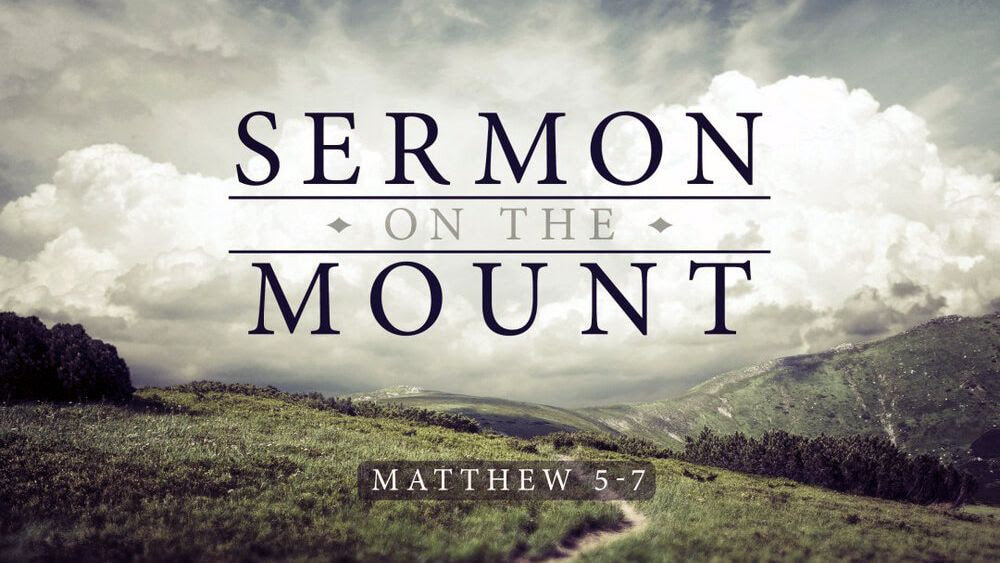




































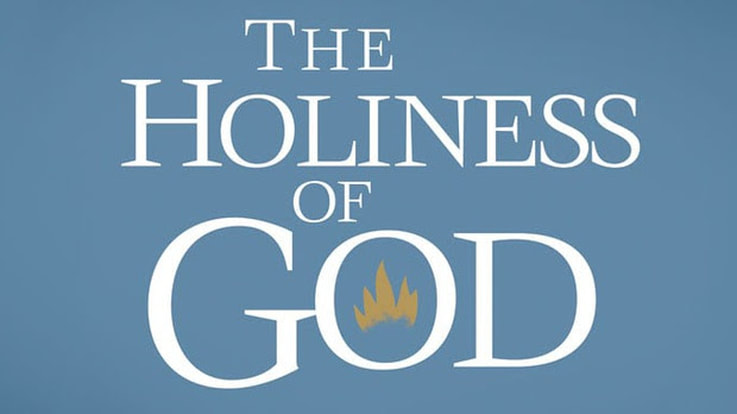
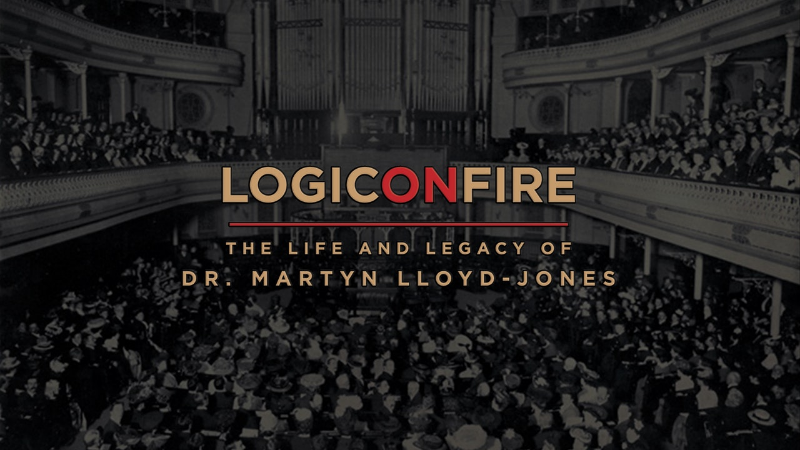

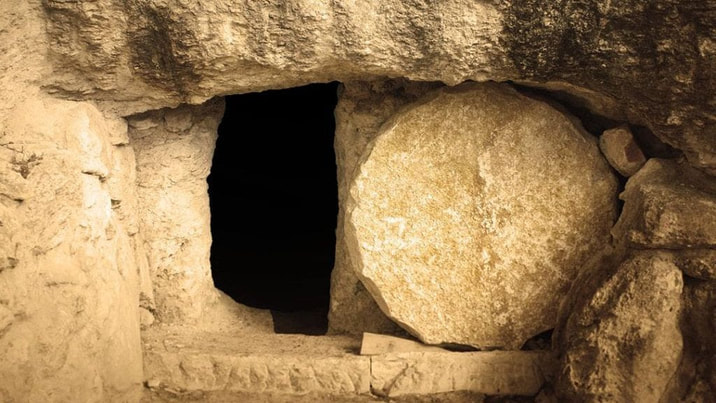

















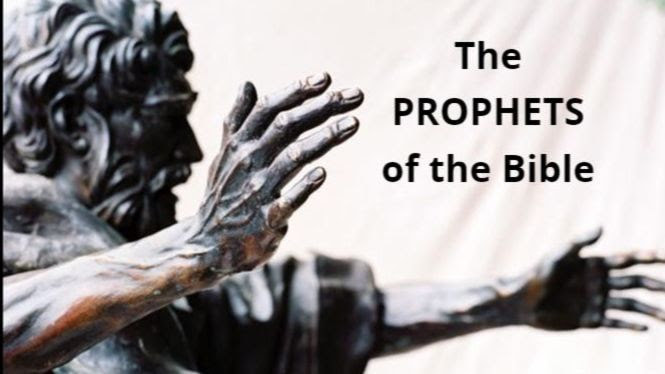


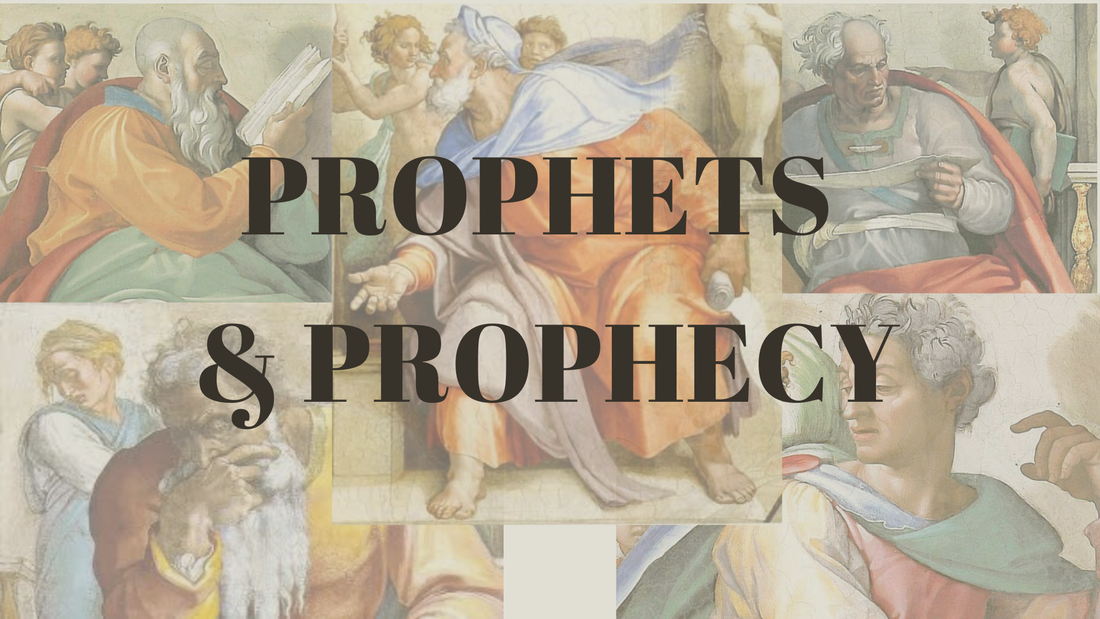
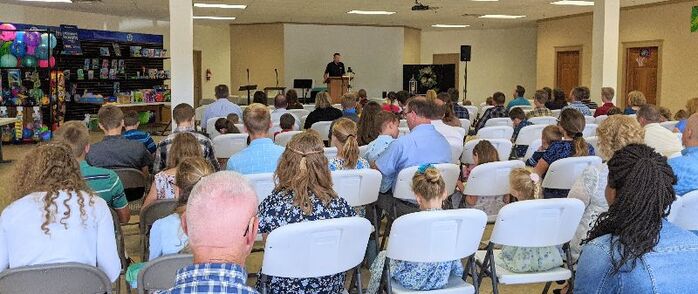






 RSS Feed
RSS Feed